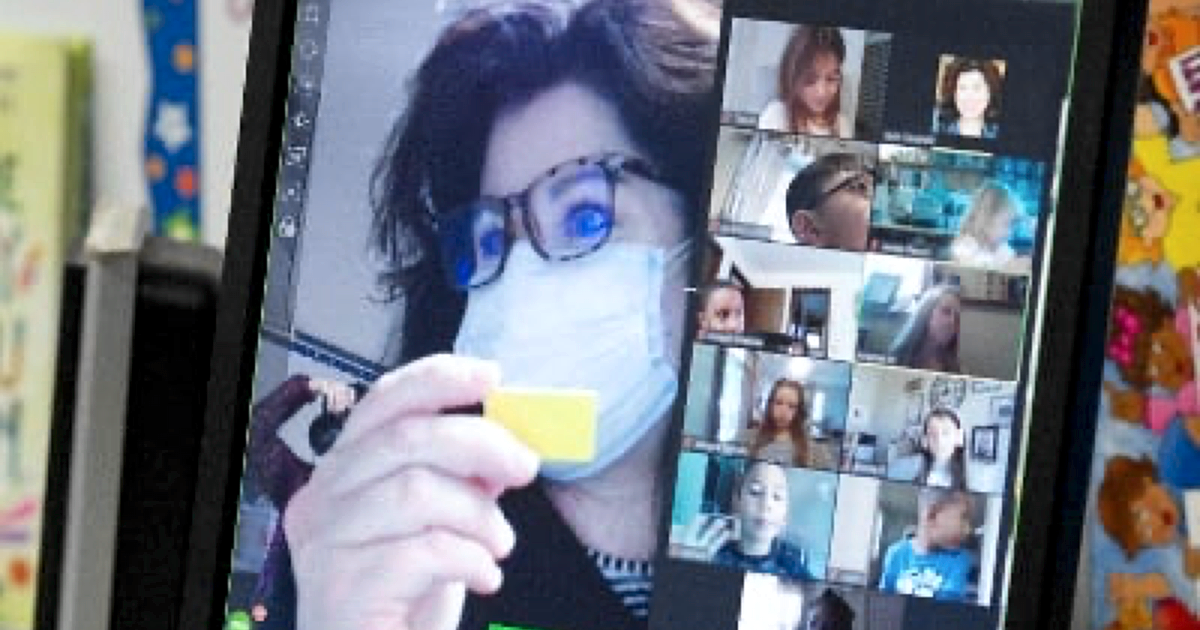
The classrooms and hallways of our schools are, thankfully, abuzz with students again. And while educators are now deep in the hard work of supporting students to recover from disruptions, we know the task of accelerating students back into learning and discovery is monumental.
Educators, we have good news: The highly engaging, easily accessible digital programs created by science museums during the pandemic are still available to help you spur imagination and inspire minds.
One of the best ways to foster learning is through hands-on, inquiry-based experiences. Along with fun, research tells us that when students are engaged and motivated, they achieve higher levels of cognition, make stronger connections and experience deeper learning. We also know that this learning comes not from quiet classrooms and directed lectures, but from classrooms and environments with an atmosphere of exuberant discovery.
While most schools only have opportunities for field trips and other out-of-classroom activities a handful of times a year, many of the new digital resources offered by science museums can be implemented anytime and without leaving the classroom.
To help assess what’s currently available for educators and to support our members in developing future digital programs, we at Association of Science and Technology Centers (ASTC) gathered data and examples about science museums’ use of digital engagement during the pandemic and how it can best be used going forward. We want to make sure educators know these high-quality tools are still available to alleviate some of their burden.
For example, in partnership with Durham Public Schools, the Museum of Life and Science in Durham, North Carolina, reimagined the classic museum field trip through Field Trip Fridays. Rather than a physical field trip to the museum, they offer virtual field trips out into the community through video conferences with experts. These sessions include on-location interviews with science practitioners of diverse backgrounds from labs, to business, to farming, and more. The interviews are followed by Q&A and accompanied with background materials for teachers.
TELUS Spark Science Centre in Alberta, Canada, creates very high-production quality, event-like experiences that virtually take students to a variety of exciting destinations. The ‘Direct From’ series brings students into an operating room, or a wolfdog sanctuary, or Banff National Park to travel to new places and see people out in the world doing science.
Arizona Science Center put their efforts behind supporting educators to adapt to online and hybrid-learning practices through CONNECT, a comprehensive and cohesive virtual STEM education solution for schools and families. CONNECT provides grade-aligned lesson plans, coaching, interactive webinars, hands- on activities, Maker Kits, STEM Clubs and more for students in grades K-8. These lessons are still relevant for in-person classroom instruction.
As we continue to learn more about how the pandemic negatively affected student success outcomes–especially in math and science subjects–it’s evident that students will need additional support to recover. Digital programs like the ones highlighted are at-the-ready for educators to use in creating engaging science activities and lessons in their classrooms.
Let’s not have these valuable resources forgotten now that schools have returned to in-person learning. Educators, connect with science centers and museums across the world to learn more about their digital offerings for your classroom or school: www.astc.org/find-a-science-center.
Melissa Ballard is the Director of Programs at Association of Science and Technology Centers. Naomi Wallace, PhD is the Manager of Impact Initiatives at Association of Science and Technology Centers.
The fight for educational equity has never been just about schools. The real North Star for this work is providing opportunities for each child to thrive into adulthood. This means that our advocacy...
Your donation will support the work we do at brightbeam to shine a light on the voices who challenge decision makers to provide the learning opportunities all children need to thrive.
Ed Post is the flagship website platform of brightbeam, a 501(c3) network of education activists and influencers demanding a better education and a brighter future for every child.
© 2020–2024 brightbeam. All rights reserved.